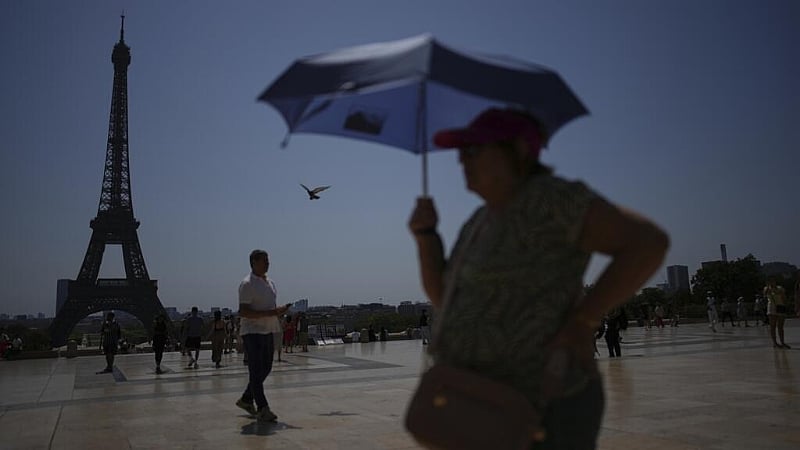The summer of 2024 bore the scorching fingerprint of climate change, leaving a devastating trail of heat-related deaths across Europe. A new study, conducted by scientists at Imperial College London and the London School of Hygiene and Tropical Medicine, estimates that approximately 16,500 deaths in European cities between June and August can be directly attributed to human-induced global warming. This alarming figure represents nearly 70% of the estimated 24,400 excess deaths recorded during the three-month period, highlighting the stark reality of climate change’s impact on human health. The research, which analyzed 854 cities encompassing almost a third of Europe’s population, found that global warming amplified average temperatures by 2.2°C. This increase, when coupled with historical mortality data related to extreme heat, allowed researchers to estimate the staggering number of lives lost due to the intensified heatwaves.
The study’s findings underscore the undeniable link between fossil fuel consumption, rising temperatures, and increased mortality. Dr. Friederike Otto, a climate scientist at Imperial College London and co-author of the study, emphasizes the direct causal chain: the burning of fossil fuels leads to rising heat, which in turn results in increased deaths. She poignantly states that had humanity not continued its reliance on fossil fuels over the past decades, the majority of these 24,400 deaths could have been prevented. This research serves as a sobering reminder of the human cost of inaction on climate change and the urgent need to transition towards sustainable energy sources.
The vulnerability of older populations to extreme heat is starkly revealed in the study’s data. Over 85% of the estimated heat-related deaths occurred among individuals aged 65 and older, highlighting the particular susceptibility of this demographic to the health impacts of extreme heat. The study pinpointed Rome as the city with the highest number of climate change-related deaths, with an estimated 835 fatalities. Athens followed closely with 630 deaths, and Paris recorded 409. These numbers paint a grim picture of the unequal burden of climate change, with certain cities and demographic groups disproportionately affected by its consequences.
The insidious nature of heat-related deaths is further highlighted by the fact that most fatalities occurred indoors. Vulnerable individuals, often grappling with pre-existing health conditions, succumbed to the oppressive heat within their homes and hospitals. Study co-author, Garyfallos Konstantinoudis, notes the often-overlooked aspect of heat as a “silent killer.” He emphasizes that a seemingly small temperature increase of just 2°C to 4°C can be the difference between life and death for thousands, underscoring the critical importance of heatwave preparedness and mitigation strategies. The fact that heat is rarely mentioned on death certificates contributes to the underestimation of its true impact.
While the majority of heat-related deaths occurred indoors, several outdoor fatalities were documented by local media. These poignant accounts provide human context to the statistical findings. In Spain, a 77-year-old former councillor collapsed and died during a walk amidst scorching 45°C temperatures. In Italy, a 47-year-old father succumbed to the heat while working outdoors in 38°C temperatures. These stories underscore the pervasive and often unexpected ways in which extreme heat can claim lives, impacting individuals across various age groups and activities.
The summer of 2024 marked Europe’s fourth-hottest on record, with temperatures soaring to a staggering 46°C in Spain and Portugal. These extreme conditions forced the closure of iconic tourist sites such as the Acropolis in Athens and the Eiffel Tower in Paris, disrupting daily life and impacting economies. While the researchers acknowledge the impossibility of immediate comparison with official mortality data due to reporting delays, they express confidence in the accuracy of their estimates, emphasizing the established and conservative methodologies employed. Further strengthening the study’s findings are comparisons with previous research, including a Nature Medicine study estimating over 47,000 heat-related deaths in Europe in 2023 and another study placing the 2022 toll above 60,000. The consistency across these studies, combined with the conservative nature of the methodologies used, suggests that the actual death toll from the 2024 summer heatwave could be even higher than currently estimated, reinforcing the urgency of addressing the escalating threat of climate change.


